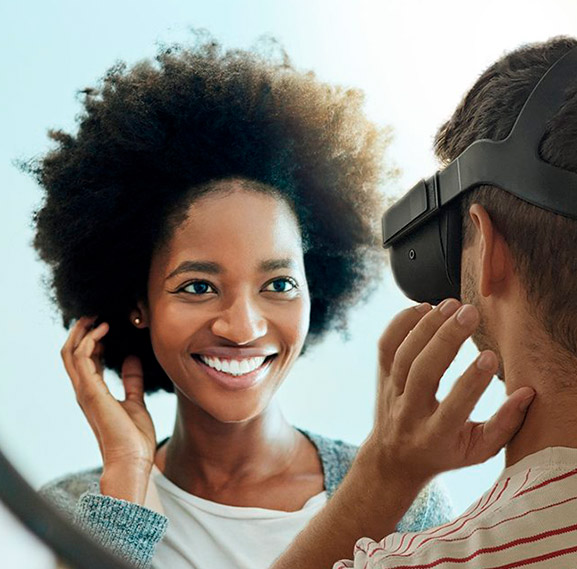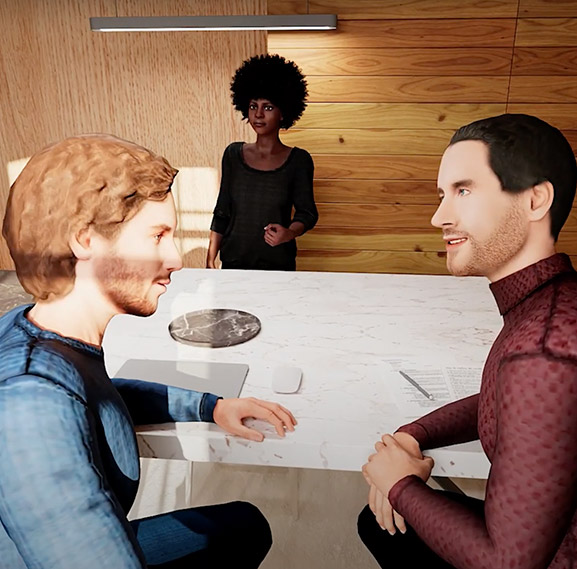Step into the shoes of Tolani in a thought-provoking workplace scenario. Through the Gender & Race experience, you will develop the skills to become an ally, fostering inclusivity and understanding. Immerse yourself in challenging situations, honing your empathy and learning how to create a more supportive and diverse work environment.

1/4
Get into someone
else’s skin
We use neuroscience and VR to create immersive scenarios that allow people to experience discrimination and bias from the perspective of others.











